

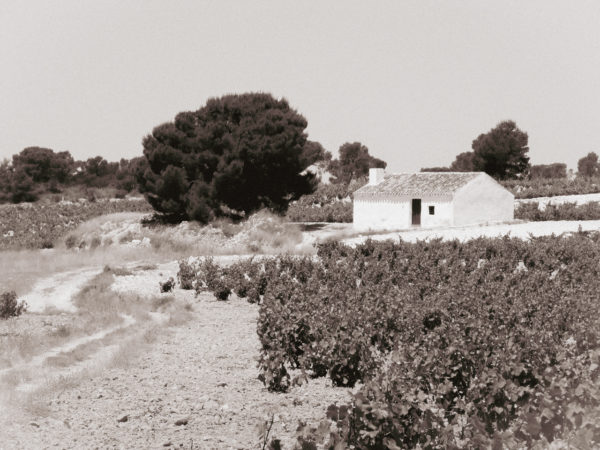
Starting with the purchase of a property in Jumilla after the end of the Spanish Civil War, José Sánchez-Cerezo began to revitalize Casa Castillo. Despite already having a winery, cellar, and scattered vineyards dating back to the 1870s as part of his farm, José initially only grew rosemary and Esparto. He did begin to plant Monastrell in a sandy patch of ground with southern exposure, vines that would eventually receive the first-ever perfect score for a 100% Monastrell or Mourvèdre cuvée. Eventually, he redirected his attention to expanding his vineyards and started selling grapes. The estate was passed down to Jose’s son, Nemesio Vicente, who took over from his father in the mid-1970s. Nemesio further developed the estate propagating additional vineyards of Monastrell, then experimental plantings of Tempranillo, Cabernet Sauvignon, and Syrah which were all fashionable at the time. Nemesio sold his grapes to local wineries at first, but when his son José María showed an interest in helping his father in the vineyards, they began to envision making their own wine.
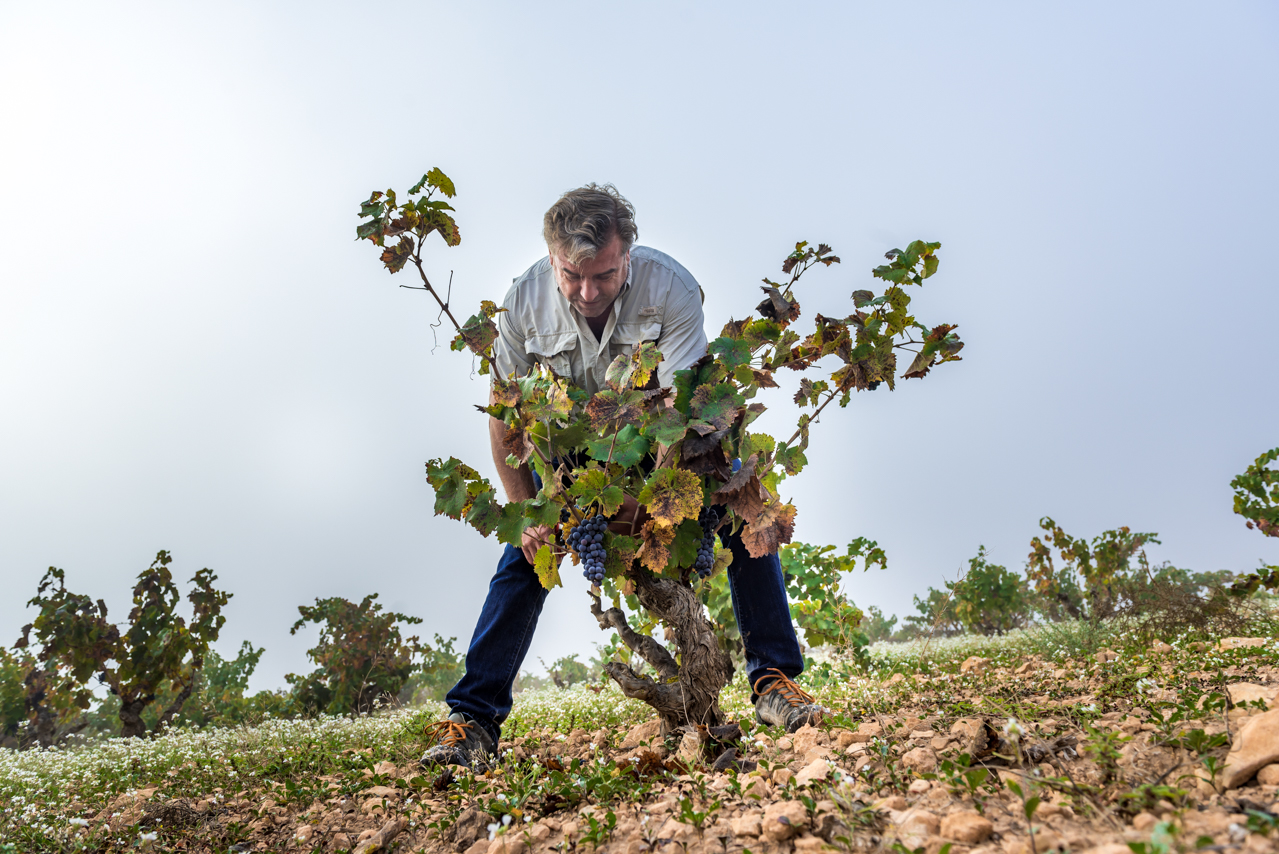
José María Vicente has struggled tirelessly to capture the Mediterranean identity of his vineyards and the much-maligned Monastrell. Despite having originated in this part of Spain, Monastrell first gained notoriety in the South of France under its French name Mourvèdre. In its native land, it was seen as suitable only for producing thirst-quenching but unforgettable country wines. Initially, new barrels, Cabernet Sauvignon, and Syrah were seen as needed ameliorants to the more rustic Monastrell. Yet, despite the modern phase at Casa Castillo in the 1990s, Pie Franco, an ungrafted and pure old-vine cuvée of Monastrell stood out among all the wines as a signpost for what José Maria could achieve with his terruño and its signature variety.
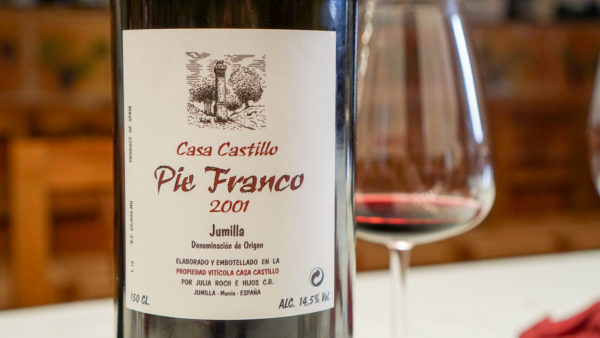
A baby still with 14 years under its belt in 2015…
“I’ve seen José María Vicente from Casa Castillo develop the property and its wines from when he launched,” wrote Luis Gutièrrez, “I’ve seen him make mistakes, learn from them and look for ways to improve. I’ve seen him fine-tune his wines, improve his viticulture and understanding of his vineyards to amazing levels. He’s done what it takes to make world-class wines.”
José Maria’s restless pursuit in search of more transparent wines that honestly reflected his land led to the reduction in the amount of Syrah that he had planted with his father and the grafting over of his Cabernet Sauvignon to Garnacha. Despite his lack of formal training, José Maria learned from his vineyards and by tasting the world’s finest wines for inspiration. José says about his wine knowledge:
“Tasting so many wines you don’t learn a formula, you learn a philosophy, an education, and in the end, everything ends up being transmitted in what we do at Casa Castillo.”
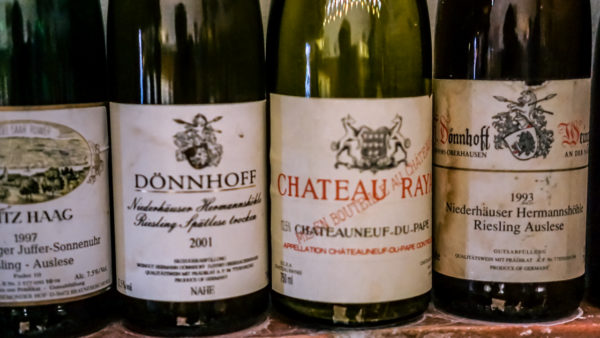
To make great wines, you must taste great wines – reference bottles in the dining room of Casa Castillo
We’ve worked with José María for close to two decades, and we’ve watched with pride as his wines have become ever more refined and nuanced. In addition to a deep and enviable cellar filled with Riesling and Grower Champagne (one needs crisp and refreshing wines after a hot and dusty tour of the vineyards), José María also makes the best rabbit & snail paella in Spain. Served with his cellar-temperature Jumilla village wine, every visit to Casa Castillo forms a more indelible memory than the last.
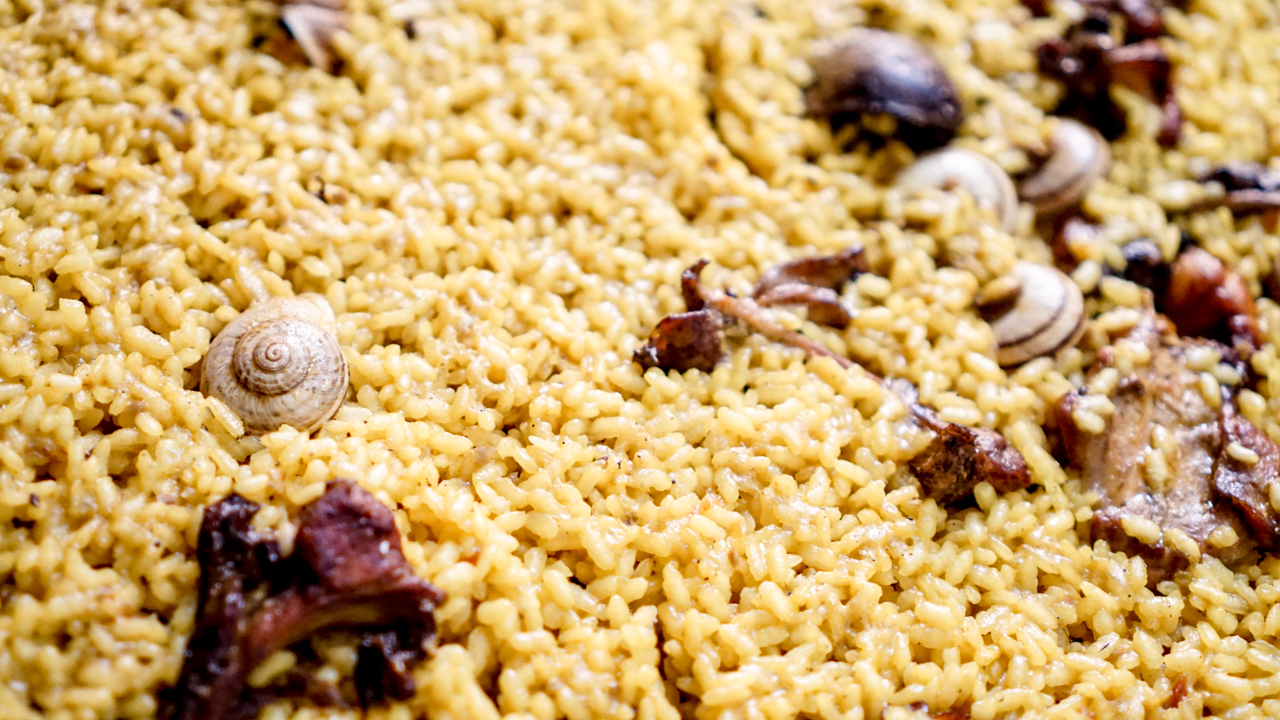
Fellow Mediterranean wine proponent Pablo Calatayud of Celler del Roure in Valencia said in response to José María’s recent accolade for the 2020 Pie Franco:
“Congratulations to Casa Castillo, a producer that has become the flagship of the region, and to José María Vicente, the ‘Patrón’ of Mediterranean wines.”
But José María’s influence has spread beyond the Mediterranean coast of Spain. Curro Barreño, on the topic of José María, remarked:
“Keko!!! One of the pillars at the vanguard of the new generation of Spanish vignerons, (also) one of the pillars of the change.” He goes on to say that Jose is “generous, always up to share his huge knowledge passionately. Mediterranean blood and King of the Monastrell!”
And Alvar de Dios, who works on the opposite side of Spain, says:
“Without a doubt, Casa Castillo is one of the reference wineries of the Spanish Mediterranean that proves that hard work, the exhaustive understanding of the land, and the commitment to quality in an area that has always swum against the current…”
And echoing our experiences when visiting with José María, Alvar goes on to observe:
“In the end, all those efforts pay off and have become history in the world of wine in this country. Despite the differences in our terruño and philosophy, José María has always shown me generosity, opening mythical bottles and sharing knowledge.”
Post by Debbie Antoszyk & Steven Spanbauer